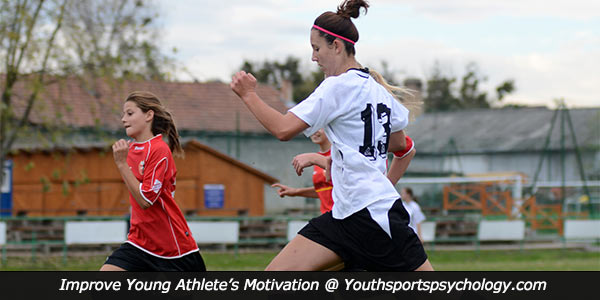Give Sports Kids Tanglible Goals
For Cami Hawkins, CEO of Marathon Kids, an organization that provides resources for schools to start running clubs, motivating kids is all about setting small goals and celebrating success.
In an Ultimate Sports Parent podcast interview, Hawkins described how the organization’s coaches set goals that are specific to kids’ interests and abilities. They also celebrate participants’ successes.
“When they set goals, they make sure they are achievable and can check them off in chunks and celebrate when they get to the overall goal,” she says. Marathon Kids uses a mileage log to track achievements in small increments. “By starting with a quarter mile, they can achieve these huge numbers,” says Hawkins.
The organization gives kids different ways of tracking their mileage visually. They can color in graphs or produce leaderboards. The idea is to help them understand that they don’t have to achieve their goals all at once; they can work toward them a little at a time.
When setting goals, coaches should “meet kids where they are,” and understand each child’s abilities and goals, says Hawkins. Some children might struggle to get through their first mile of running. For others, the first mile is easy. Overall, the aim is to set the stage for kids wanting to do more, even after they reach their overall goal.
Motivate Sports Kids with Celebrations
Celebrations are also key to motivating kids, says Hawkins. Marathon Kids, which works within the Austin, Texas and other school systems, has a kickoff event in Austin at the beginning of the year.
There’s also a celebration at the end of the season. The organization even encourages coaches to celebrate smaller gains through the year. These events can be school assemblies or fun runs, for example.
Marathon Kids has discovered that trophies and prizes don’t necessarily motivate runners. For the last five years, kids earned some kind of prize when they achieved a milestone. But the prizes were expensive and increased the cost of the program. “We wanted to open up access to the program so anyone could do it and so we wouldn’t be limited by the constraints of the price of prizes,” she says.
The organization stopped offering prizes, and instead offered a digital lap tracking application. We implemented a less expensive sticker-based prize system was implemented. Just as many people wanted to participate in the program.
“We found that kids get just as much value out of the celebration and recognition as a physical t-shirt or bracelet or medal,” she says.
For parents eager to get their kids running or involved in sports, it’s important to keep Hawkins’ experiences in mind: Set achievable, incremental goals and be sure to celebrate kids’ progress.
She adds that it’s a bad idea to use running as a punishment. The negativity of the punishment–whether it’s for making mistakes in sports or in school–makes it harder to motivate kids to get moving.
Listen to the Ultimate Sports Parent Podcast
Related Kids Sports Psychology Articles:
- What Motivates Kids to Play Sports? This Will Surprise You [Podcast]
- What Motivates Kids (Without Pressuring Them)?
- When Athletes Compare Themselves to Others
*Subscribe to The Sports Psychology Podcast on iTunes
*Subscribe to The Sports Psychology Podcast on Spotify
The Confident Sports Kid

When kids lack confidence, they doubt themselves, stop taking risks, play tentatively, and are hard on themselves. As a result, kids often lose their motivation to improve. Ultimately, these barriers keep them from enjoying sports and making the most of their physical talent.
“The Confident Sports Kid” program is actually two programs: one that teaches sports parents how to boost their kids’ confidence, and another that teaches young athletes age 8 to 18 how to improve their self talk, avoid negative thinking, overcome expectations that limit confidence, and much more. The program will help kids boost their confidence in sports and life…and enjoy sports more.

